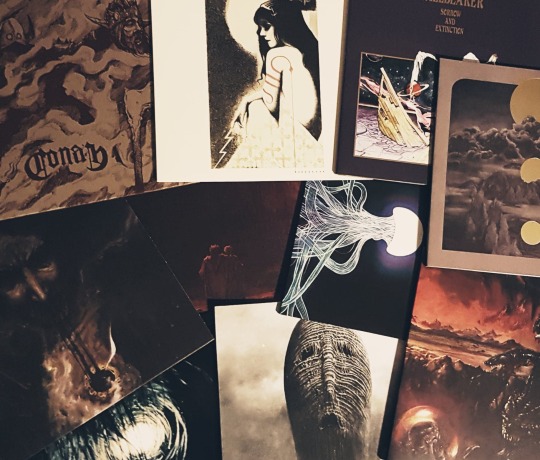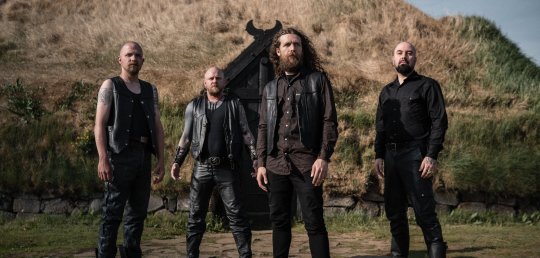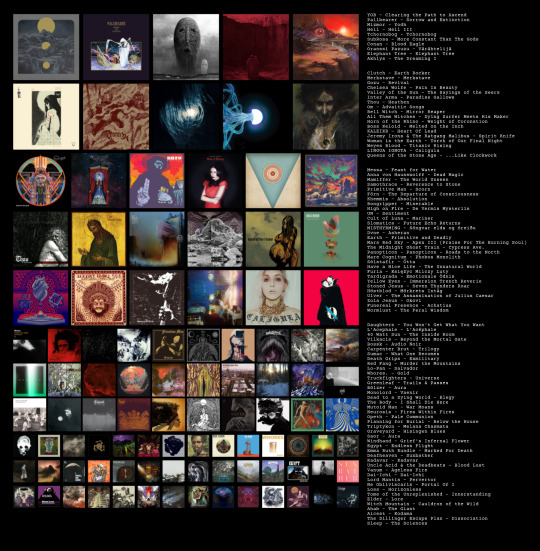#behold the lore fuckery
Text
When Tim Drake ran into Killer Croc while infiltrating Arkham, he didn't survive.
To those not familiar with Batman Lore; there was an incident where the Joker was using Joker gas on a bunch of other villains, and Tim went to investigate. Croc snagged his cape, but he got away.
Unfortunately, the cape landed on a chewed-up skeleton, and the batfamily was misinformed of his untimely demise, and Dick Lost His Shit.
This is what led to the infamous incident of Dick beating the Joker to death.
So, slight change.
Tim genuinely did not survive that Croc encounter. He got away, to be sure, but he succumbed to his injuries deep, deep in the sewers.
Very deep into them.
So deep they probably weren't actually sewers anymore and were just an underground cave system filled with gross water.
After managing to pull himself up from the water and onto a stone outcropping, with strange sigils carved into the floor, Timothy Jackson Drake falls into the arms of Death.
Danny, meanwhile, was minding his own business when he became aware of the tugging sensation of a summoning.
...And the distinct disgusting aftertaste that came with a human sacrifice.
By the time he arrived, the baby core was already humming discontentedly above a fresh corpse. A corpse that belonged to a kid that was far, far too young.
There was still a connection, albeit faint, from the baby core to the body.
So Danny, all of thirty and panicking something fierce, tries to force the baby core back into the body in front of him.
Nothing doing.
The body is willing to accept the core, to feed off of the ectoplasm Danny was willing to feed it and convert that energy into the life-saving healing that the kid needed, but the core was weak.
So Danny...improvised.
He reached into himself, and managed to painfully peel off a splinter of his own core, and fed it to the baby one. He'd be the equivalent of a swooning victorian maiden for a few years, but if the kid was able to survive it'd be worth it.
The baby core accepted it, ate the sliver of power it was given, and melted seamlessly back into the body.
Danny waited. And waited. And waited.
And waited.
And with a bright flash of light that seemingly changed absolutely nothing, the kid started breathing; his wounds started closing up.
Job done, Danny grabbed the kid and phased him through the earth and to the city above. He could already feel himself getting faint, so he just dumped the kid somewhere the kid's core recognized as a good spot and dipped back to the summoning circle, and back to the Infinite Realms.
Danny did not realize what he had just done.
Tim's body had, in that flash of light, had it's DNA changed much the same way Danny's had, if not more so.
Same in regards to Tim being a baby halfa, who has had no reason to believe he has any form other than his human one.
Different in that Tim's DNA now no longer reflects Jack as his biological father.
It reflects one Daniel Fenton.
4K notes
·
View notes
Note
We getting any more PRISM lore? Gotta say, can't just leave these plot summaries hanging around like nothing! Oughtta do something with em!
I have not been able to answer this until now because i have been doing lots of things, but yes! i do plan for more PRISM lore to be on the way soon! I just need to tackle my brain and make it focus on PRISM.
However, I do infact have some good old lore for you! It's being put under a read more because it is long, but here we go!
So, a bit before the beginning of S2A4, Prince loses his reflection and begins to think he's become a vampire and begins to stray away from any reflective surfaces. Emperor obviously notices this.
But there's even more weird shit going on, for instance, Emperor's been getting strange notes that appear on his mirror, except he can't remove them at all, he only touches the glass. However the notes disappear the next day.
So as you know they head over to the Prism Isles after consulting the elder agents about this shit fuckery that's happening with their reflections, and low and behold, after a bunch of searching, they find a giant ass mirror.
And then Goggles touches it, and gets sucked into it.
And then it sucked the rest of the Squidbeak, thanks Goggles/s
So soon after Goggles and company get sucked into the Mirror they find themselves in a strange new dimension, however they soon meet a suspicious figure, or rather, three figures.
The three figures then inform the Squidbeak about what's going on, and what this place is.
So, this is the mirror world, and there is a tyrant beginning to take over the land and is plotting to take over the real world as well, which is a big yikes.
after this explanation, the figures introduce themselves as Retro, Seven and Ren. Also being Emperor, Hachi and Vintage's own reflections.
---
And that's where I will leave that off because if I continue it will become a full summary and this is not the post for that.
But don't worry anon! I won't be letting you hang onto what little lore bits there are! Soon there will be an entire platform of lore!
#splatoon coroika#coroika#coroika au#splatoon manga#coroika prism au#goggles you fucking idiot/j#Kenzie answers
3 notes
·
View notes
Text
How I Found my Gods
Thor came to me when i was somewhere between the ages of 5 and 7. There was one rainy day in April where the carnival was in town and i told my mom i really wanted to go. She told me she'd take me there when the rain stopped. So i posted up at the window and waited. Soon after, the rain ceased, so i went outside to confirm, and low and behold, it started raining again. So i went back to the window to wait. Rain stopped. I went outside. Rain started again.
I remember thinking that i had some kind of superpower. Then i thought about Thor. I don't know where i learned about him or how, i never read a marvel comic or anything, I just knew he was the god of thunder.
Then i remembered my fixation with stormy weather, and the fact that i was born during one of the worst floods in my valley's region. I put those puzzle pieces together and concluded that i was the daughter of Thor. I even started carrying around a hollow, plastic mallet from the whack-a-mole game my brother and i used to play, because to me it was like Thor's hammer.
In the years that followed, i stopped believing that I was Thor's daughter, but the weather fuckery followed me throughout the years. I especially developed a reputation with my horse riding teacher for having control of the weather (no matter how hard it was raining, the rain would stop for the duration of the lessons 9 times out of 10). I would quietly thank Thor for his assistance and he's been with me ever since.
I'm putting the rest under a readmore because it's gonna get long.
Athena came to me four and a half years ago, when i started on my witchcraft journey. I have it recorded somewhere but the specifics that lead me to conclude that she was reaching out to me are hazy. It was like a different presence in my mind, and Athena was the name that kept popping up. I can feel her there when I practice self-maintenance, or study, or create plans. Her presence is stern, but motherly and wise.
And speaking of wise, Odin started to make himself known to me last year and then hit me like a Mac truck on the morning of my 23rd birthday. I heard a raven (or at least, I really deep-voiced crow) call as i was walking to my car from some friends' house. I'd never heard a bird make that noise before. It made me pause and go "hi, Odin."
Later, i would ask him to send me a sign that he was there. I remembered that he had one eye and so I asked specifically for a car with one working headlight. Then i started seeing them even and especially when i wasn't looking for them. Even now, when I see cars with only one headlight, I know to do some sort of reading, because I know that Odin has a message for me.
Nyx came to me in a dream, perhaps last month or the month before. I dreamt I was in some Skyrim-adjacent land, and I was either a rogue, a bandit, or a mercenary. I also remember a square pond in front of a futuristic, mansion that looked like it would belong to a tech millionaire or something. The pond was full of corpses.
At one point, I knew I needed to see a woman by the name of Nocturne (probably referencing Nocturnal in Elder Scrolls lore). I went to her cottage, and the place was shrouded in eternal night and lit by bright orange lamplight. Nocturne was a beautiful woman, and she wore dark, flowing garments. She had a very motherly energy around her, but I also got the sense that she was extremely powerful: you did not want to get in her bad graces.
She greeted me warmly, knowing why I was there, and began picking flowers from the front of her cottage. She handed the bouquet to me and told me that if I smelled these flowers in the presence of an enemy, they would become pacified. She then gave me a hug and sent me on my way. I then met an assassin, a servant of Nocturne’s, who remarked that “yeah, Nocturne’s pretty special.” Later in the dream, I got to use the flowers and successfully pacified a dragon. I began to consider the possibilities shortly before I woke up. And when I did, Nocturne stuck out with me the most.
I began looking up goddesses, and found Nyx. I confirmed with the pendulum that it was her, and that was that.
Lastly, there’s The Morrigan. I’ve been fascinated by her for at least two years now, but she only really began popping up in the periphery of my mind recently. I don’t know her as well as I could (or even should), but I’m working on getting there. What I can tell you is that she’s intimidating, but I respect the hell out of her. She’s the one who has all but demanded I do shadow work, which I am more than happy to start, in part because I’m a glutton for punishment, but mostly because I want to be the best version of myself that I can possibly be. It’s what my gods would have of me.
So that’s five deities that i work with (not counting Freya, Loki, and the Dagda, who I’ve made offerings to and spoken with but don’t really work with apart from that). I’m not yet fully devoted to any of them, because that feels like a commitment that I want to be sure I’m ready for first. Luckily, my gods have been very patient with me.
#eclectic pagan#hellenic pagan#norse pagan#heathenry#celtic pagan#Thor deity#Athena deity#Odin deity#Nyx#The Morrigan
48 notes
·
View notes
Text
You guys I have so much shit to say about how World of Warcraft treats the forsaken/undead and Sylvanas Windrunner. Like there’s SO much bullshit in their treatment since vanilla and I have WORDS. (Christie Golden gets the depth available to the forsaken, especially in the novel ‘before the storm’, but she’s also shackled by the lore that was put into the game before her official debut as a writer on the game itself).
Alright, so first things first, a little history lesson on the forsaken or, more accurately, the nation of Lordaeron (and a little bit on Silvermoon)
Arthas menethil, prince of Lordaeron, goes on a mission to try and protect his kingdom but through the manipulations of a demon and the actions of the cult of the damned (who were necromancers), Arthas eventually wields a cursed blade that corrupts his soul and turns him to the dark side. Subsequently he returns, with an army of undead at his heels and wipes out the nation of Lordaeron from the map. (this is a very simplified version of some pretty amazing storytelling back in 2003′s warcraft 3, go play it, it’s good). Silvermoon, the city of high elves, was sacked shortly after and Sylvanas Windrunner was turned into a banshee (banshees are usually spirits, Sylvanas Windrunner eventually regains control of her body though).
The citizens of Lordaeron have now been transformed into the undead, but are at the beck and call of Arthas’ new master, the lich king (details on this dude are unnecessary for this piece). Arthas acts as the right hand man, when suddenly he starts to lose his power, the lich king is weakened and Arthas goes to the lich king and becomes one with him. In the mean time, this allows many undead to break free from both the lich king and Arthas’ control. Sylvanas Windrunner leads these newly freed undead back to Lordaeron and establishes the nation of undead, calling them the forsaken.
So what we have is a nation beset by multiple tragedies, the loss of the royal lineage and leadership, and they have been irreversibly transformed into something horrifying, something that the living cannot withstand. Then information comes out about World of Warcraft, that the forsaken are going to join the newly reformed Horde (which at the time only included orcs, jungle trolls and tauren, the tauren advocated for the forsaken saying the orcs had a chance at redemption, why not the undead).
So what do they do with the forsaken?
Make them evil lite.
The forsaken have become the very evil that they freed themselves from. They performed vile experiments on the living, continued to produce monstrosities called abominations, and generally lived in conditions that would not be healthy to the living. As if they already had a culture of undeath that had existed for centuries. They used to be an entire nation run by a monarchy, that had alliances with other nations amongst the faction called the Alliance, but now they’ve had their entire existence altered forever overnight, and they have to deal with the repercussions of this for what may be the rest of eternity.
That should have been the story of the forsaken. A ramshackle nation trying to decide how best to live in their new existence, the reasonable shunning they would face from their once friendly allies. A story of complete tragedy. Not one where the entire population accepts the fact that they’re undead, and thus do evil things that don’t see them exiled from the Horde because there are bigger threats that the planet faces. What’s more, the forsaken have a racial ability called “cannibalize”, which allows them to EAT ANY HUMANOID CORPSE THEY FIND.
When they made world of warcraft, they just saw the undead and went “we’ll make an undead themed city and an undead themed culture, embrace the evil and what not”. They didn’t see the inherent tragedy that underlined their entire civlization, how they had to start anew. There aren’t even any undead children in the game (a theme that is potentially way too dark for an MMO with an audience rating of 13+), a grim reality that the world would have faced.
And Sylvanas’ bitterness towards the living is somewhat astonishing. Naturally any leader should feel empathy and protective over the citizens of their nation, but Sylvanas’ early history in the game seems to be completely mistrustful of her allied nations. Rather than being a cautious leader learning the ropes of sovereignty and trying to assuage any fears that her living allies may have about the forsaken (on top of leading what should be a morally broken populace caught in tragedy and despair), she’s a leader who sticks to the shadows and sees her allies as tools in her war against the lich king, she even sees her own forsaken as tools to be used against the lich king.
Sylvanas is a warrior at heart, so i can get some of the practical thinking she has towards her own protection (such as joining the horde and having a demon as a part of her council), and as a military leader she understands the battleground. But what of the rest of the forsaken? Most of them are going to be farmers, blacksmiths, villagers that have been forced to go through the tragedy of war, with memories of themselves tearing apart their own kin under the command of a cruel malevolent overlord, and now facing what may be centuries of existence and possible persecution at the hands of the living.
Blizzard failed in its initial construction of the forsaken civilization. They misused tragedy and forced upon the corpse of a nation an evil label that gets excused because ‘they can be redeemed’.
and then, AND THEN. When it comes to their further development, the forsaken create a plague that can wipe out both the living and the undead, AND USE IT AGAINST THEIR ALLIES AND THE LICH KING. While this is blamed on a subfaction of the forsaken lead by the previously mentioned demon who had manipulated the forsaken that turned on the horde and the alliance, it turns out Sylvanas ORDERED THE PLAGUE TO BE CREATED.
THEN, when all is said and done, and the lich king is defeated, Sylvanas (through some triggering events I won’t go into here) ends up gaining the allegiance of some undead angel beings who can raise the dead. Then, SHE RAISES MORE DEAD because, as she puts it in game: “My people cannot procreate, this is how we increase our population”. She, who was once the victim of tragedy, now has become the VERY THING SHE FOUGHT TO DESTROY. The new leader of the Horde at this time rightly points out the similarities between Sylvanas and the lich king (don’t even get me started on Garrosh, maybe another time), but ends the discussion there. Not only that, the forsaken AGAIN USE THE PLAGUE AGAINST THEIR ENEMIES, this time fully under Sylvanas’ command, against the orders of the leader of the Horde.
It’s just, baffling. This could have been some AMAZING storytelling of a nation of lost souls trying to find their place in a world that only sees horror instead of the tragedy that they endured (being turned undead and then enslaved and forced to kill everyone they love). A story focused on tragedy and trying to make the best out of a horrifying situation. Christie Golden truly gets this angle. In ‘Before the Storm’, you get a very decent look at what the civilian population of forsaken is like, how they need to replace their limbs by raiding the graves of those buried near for body parts, how many of the forsaken still act like they are alive because that’s literally all they know (like how they eat, sleep, drink, and think that their muscles will grow stronger with exercise). How the civilians formed a council to handle the day to day needs of the civilians when Sylvanas wouldn’t step up (or couldn’t, because through some fuckery she becomes the leader of the Horde). And then Sylvanas and the leader of the Alliance agree to have some forsaken volunteer to meet their still living relatives (which is a fucking amazing storyline). Some forsaken are too bitter to even speak to their relatives at the meeting, but other forsaken start enjoying their time together.
and then when those forsaken decide to try and seek refuge with the alliance in order to stay with their still living family members, Sylvanas kills only the forsaken that enjoyed time with the living. And then lo and behold Arthas’ sister is discovered to be amongst the living. Because she technically wasn’t part of the alliance, and was a threat to the leadership of the forsaken, Sylvanas takes her out.
Does the reasoning make sense? Yes. Ish. I think Christie Golden was shackled by the ruthlessness of Sylvanas’ past actions and cruelty that it make sense in that context. And it does make sense that some of the undead would be bitter towards the living for shunning them (or, even worse, outright trying to kill them). But it seems like there’s this overwhelming disregard for the situation that created Sylvanas to begin with. That a once living noble warrior would succumb to the evil that was forced upon her isn’t a new trope, but it should have been one that Sylvanas overcame. The forsaken deserved better than their ‘evil lite’ culture. I’m glad we got any nuance at all from Christie Golden’s book.
We’ll see what bullshit awaits the forsaken in Shadowlands (which does have intriguing lore, i’m not against this expansion per se, I just wish for better representation of the tragedy that the forsaken face rather than this ‘evil lite’ thing that they currently have going).
18 notes
·
View notes
Text
Top 10 Albums Of The 2010′s
~By Calvin Lampert~

I think it is safe to say that underground metal has enjoyed a period of unprecedented growth and popularity in the last 10 years. But when I am saying this I am not only thinking about the heavy underground; those adherents of the Sabbath sound and this whole new wave of doom metal bands. I am thinking of the fact that (underground) metal has undergone a change in image, too.
Though frequently maligned as hipster bands (or metal for people who don't like metal), acts like Deafheaven have brought metal to a whole new audience and raised awareness of the genre as a genuine form of art that does not just exist for its own sake; that metal fans only go for gore, beer and self-referential horn-throwing. Not that Neurosis and Godflesh haven’t been ambassadors of this mindset for more than three decades already, but it feels that the understanding of metal as art seems to have finally broken through to an audience outside of the traditional metal subculture in the past decade.
I think it is in no small part thanks to some of the bands on this list I have assembled (though I may have forgone obvious picks like Alcest and Deafheaven for more personal choices). And in retrospect, it should’ve been a list of bands rather than records, as most of the artists on this list would’ve have had a claim to a spot on here, with any record they put out. Take that as a hurray for consistency. So, without further ado, my picks for the best and most remarkable records of the decade.
10. Akhlys – 'The Dreaming I' (Debemur Morti - 2015)
The Dreaming I by Akhlys
I can’t help but wonder if Naas Alcameth of AKHLYS (also of Nightbringer, Aoratos and Bestia Arcana) set out with the express intent to create what is essentially a nigh perfect atmospheric black metal record when he started working on The Dreaming I. It damn sure feels like, each strum, syllable, and beat sits at the right place; the pieces of this nightmarish puzzle fit with an unsettling ease.

Photograph by by Kuba Leszko
The sound really does justice to the underlying concept of dreams and nightmares, as you’ll rarely find a record with such an impenetrable atmosphere. Once you hit play you’re soon enveloped by countless layers of swirling guitars, all at the command of Naas Alcameth, and he seems hellbent on suffocating you with them. The Dreaming I is about as close as you can get sleep paralysis-made-music. If you put off black metal as spooky noise made by a bunch hooded esoteric nerds you might’ve found your match in Akhlys. They are just that, they’re dead serious, and the results are impressive.
9. Elephant Tree – 'Elephant Tree' (Magnetic Eye Records - 2016)
Elephant Tree by Elephant Tree
I’ve observed myself growing increasingly apart from most stoner rock as of late, sometimes even antagonizing the genre. I’m afraid I’m just burned out on it and grown embittered, so a record from those genres ending up on my Albums of the Decade list should give you a hint of just how special it really is.
That is not to say that there haven’t been some real stoner rock heavy hitters this decade, such as Gozus Revival, Valley of the Suns Sayings of the Seers or Lo-Pans Salvador, but there’s something to ELEPHANT TREE's self-titled record that just so narrowly sets it apart from the others.

Photograph by Phil Smithies
What that is I am still not quite sure, and I had my fair share of relistens. Maybe it is the tasteful balance act of the production that makes this record so wonderfully ethereal but also ridiculously crushing. Or the sleek as all hell songwriting where every hook fires but the flow remains impeccable. Or the gorgeous harmonic interplay of Jack Townley and Pete Hollands vocals. Or maybe really just the sum of it all.
Whatever it is, Elephant Tree get it so very right and it is a true joy to behold such a well-written and fine-tuned record in a genre that has become all too prone to shoddiness and idle Kyuss worship. If there is any justice in the world, Elephant Tree will be looked back as a classic of the genre.
8. Oranssi Pazuzu – 'Värähtelijä' (Svart Records/20 Buck Spin - 2016)
Värähtelijä by Oranssi Pazuzu
So many have tried to do it. Countless chonged out Hendrix worshippers. Australian neo-psych darlings. But they all failed. Turns out the holy grail of psychedelia was dug up by a bunch of dudes in the frozen wastes of Finland when they decided to throw together black metal and almost every imaginable psych rock permutation under the firmament. Absolute insanity inducing balls-to-the-wall trippiness ensues.
ORANSSI PAZUZU is their name, ego-death squared in hyperspace is their game and Värähtelijä is the latest in a slew of attempts to smear your brain across the event horizon, and their most accomplished one so far. Think Hawkwind trying to interpret the soundtrack of Interstellar with a guy being spaghettified by a black hole screaming on top of it. Huge, plodding riffs and spacey synth fuckery abound.
Film by Shelby Kray
This madness extends to their live shows, yours truly (being completely sober) suffered a sensory overload when they launched into the crescendo of the album opener "Saturaatio" at Roadburn 2016. This band is taking things to the next level, and something tells me that Värähtelijä is just another chapter in an increasingly maddening venture.
7. Conan – 'Blood Eagle' (Napalm Records - 2014)

You can’t really draw a picture of the doom scene in the '10s without CONAN. And I do mean that in quite the literal sense, as seemingly every self-respecting doom fan seems to own at least one Conan shirt and you can’t really go to a gig without seeing one.
By all accounts the band probably could’ve retired years ago and just live off those rad merch designs. But Conan knows no rest -- always writing, always touring, always scheming. Thus the band has fed a steady stream of releases to a cult-like following over the years and narrowing down the output of such an important band to just one record is no small task. My choice eventually fell on the fan favorite, 2014's Blood Eagle.

Photograph by Sally Townsend
Conan had already pretty much established themselves as the emergent sludge-doom act of the decade at that time, but as we know they’re not one to rest on their laurels and Blood Eagle was just them driving the point home and the stake deeper, solidifying a grasp on the scene that hasn’t waned ever since, and they did it oh so righteously, by the primordial might of tonal displacement and drop F glory.
Conan might have the closest thing to a universal doom appeal because they speak to your baser instincts. Songs like "Foehammer" or "Total Conquest" seem like trebuchets aimed at the synapses of your reptilian brain, and I can’t help but admire these noble DIY barbarians, who so deservedly have carved out their place in the canon of the genre.
6. SubRosa – 'More Constant than the Gods' (Profound Lore - 2013)
More Constant Than The Gods by SubRosa
SUBROSA was one of a kind. If one band calling it quits this decade broke my heart, it was them. But before doing so they gifted us three outstanding post-metal records, whose folk and chamber music flourishes felt completely unique, intimate, and anachronistic in a genre dominated by more vast and spacious narratives. They reached inward rather than outward and did so with a no-parts-wasted mentality.
In a world rife with one-trick bands, SubRosa's employ of multiple vocalists and two electric violins felt natural and unabashedly non-gimmicky, and they would reveal the true potential of their sound on 2013's harrowingly beautiful More Constant than the Gods.

Photograph by Alyssa Herrman
More Constant is remarkable for its elegant and restrained way of instilling dread. Hardly any harsh vocals, the tempo never goes beyond a steady stride, just those horrific and yet also beautiful violins, plodding guitars, and downright poetic lyrics. And SubRosa seem to feel right at home on either terrain, be it the skin-crawling lead guitar line of "Affliction" or the grandiose outro section of "Fat of the Ram." One can only hope that SubRosa will return one day. A band that was truly novel, and not just a novelty.
5. Tchornobog – 'Tchornobog' (Fallen Empire / I, Voidhanger - 2017)
TCHORNOBOG is many things. Among others, a dark, ancient Slavic deity. In the world of music, a monolithic amalgamation of extreme metal, some Eldritch chimera of cavernous black, death, and doom metal. And the beast of one Markov Soroka, though him stating that the Tchornobog inhabits his head begs the question who might really be in charge?

Photograph by Nona Limmen
Soroka does indeed seem to be guided by spirits since he started the project at the age 14, and eight years of gestation and arduous work culminated in one of the most engrossing, all-consuming records I have come across this decade. Far be it from me to reduce Tchornobog’s remarkability down to the young age of its creator, but Sorokas ambition and execution of those ambitions could run circles around a lot of veteran extreme metal bands. The man is just flat out talented. And that is not even taking his various other projects (Drown, Aureole, Krukh) into account, or his curation work through his own label, Vigor Deconstruct.
As such, Tchornobog ultimately is, among many other things, a bright spotlight shining on a young man who has all the makings of being the next big underground metal mastermind. I’m sure you’ll be inclined to agree as soon as Soroka brings out the grand piano and saxophone on "III: Non-Existence’s Warmth (Infinite Natality Psychosis)" to perform what I’d like to call Lovecraftian Lounge Music. He must have a thing for Demilich too, judging from those song titles.
4. Hell – 'III' (Lower Your Head / Pesanta Urfolk - 2012)
Hell III by Hell
There is a subtle power in melodies, particularly melancholic and sad ones. Doom, and more specifically funeral doom, have long since sought to harness the power of the melody, but I think nobody has been quite as effective or moved me so profoundly with a simple plucked melody as MSW, the singular mind of HELL.
Just one minute into Mourn, the opening (and penultimate) track of Hell III), I am already instilled with a deep sense of melancholy, but also foreboding doom. However, few songs can just thrive from having a good riff or lead -- and there’s 17 minutes yet to go. I’ll spoil you and say that in this time Hell shifts between doom, black metal, neoclassical music, and dark ambient. That’s a lot of territory to cover and it becomes apparent that for how meticulously well crafted its individual parts are, MSW never loses sight of the bigger picture and the transitions between these different sounds are seamless.
Film by Billy Goate
At the danger of sounding like a huge fucking nerd, I really am more inclined to refer to "Mourn" and its follow up "Decedere" as movements rather than songs and if the songwriting doesn’t clue you in you’ll be persuaded by the time Decedere breaks out the operatic vocals and a flute accompanied by a string ensemble. And no matter if he’s performing a contemplative acoustic piece or pounding you in the ground with some absolutely hellish (the band name is apt as can be) blackened doom, MSW always manages to maintain an aura of grandeur. MSW is not just a great songwriter, he’s a veritable composer, and III is his magnum opus.
3. Mizmor – 'Yodh' (Gilead Media - 2016)
Yodh by מזמור
If whatever has come before was bleak, then Yodh is pitch fucking black. This decade hasn’t lacked in dark records (not even taking metal into account -- Mount Eerie's A Crow Looked at Me, Nick Cave’s Skeleton Tree, or The Caretakers Everywhere at the End of Time), but taking on existential dread specifically (and thereby becoming a vessel for it) MIZMOR's Yodh remains unsurpassed in its sheer effectiveness to instill said dread in the listener and is possibly the most harrowing record of the last 10 years.

Photo by Kento Woolery
As befits the theme, Yodh genuinely sounds like the work of a broken man. A miserable slab of glacial funeral doom and grimy black metal, but delivered with a brute strength and conviction that really suggests more defiance than self-pity. I’d be remiss to not point out ALN's incredibly varied vocal performance, ranging from wretched snarls and air-starved bellows to what I can only describe as pterodactyl shrieks, all carrying the same biting vitriol as the instrumentals.
Film by Shelby Kray
Yet for all its doom and gloom, Yodh surprises with occasional moments of tenderness and outright (if melancholic) beauty, too, such as the acoustic intro of "II: A Semblance Waning" or the massive main riff of "III: The Serpent Eats Its Tail" that feels like the sort of thing Pallbearer would’ve come up with if they had been more into Mournful Congregation than Warning.
All these things combined with thoughtful, introspective lyrics make Yodh into an incredibly powerful and downright visceral record, and if for you the main draw of doom metal lies its emotional potency (as it does for me) then Yodh is an essential listen. Let ALN shout down the very pillars that uphold your personal beliefs of life’s meaning.
2. Pallbearer – 'Sorrow and Extinction' (Profound Lore - 2012)
Sorrow And Extinction by Pallbearer
Warning was the first band to try to bridge the gap between traditional and modern doom metal, and while Watching from a Distance might have a fair claim to be one of the saddest metal records out there, in my eyes it was PALLBEARER who took that formula even further and perfected it with their 2011 debut Sorrow and Extinction. To me, it’s a classic record in both senses. A landmark of post-millennium doom and a throwback to the days of yore, when Saint Vitus and Candlemass were in charge of bumming everyone out; while still maintaining the larger-than-life-feel and sonic heft of modern doom championed by bands like Yob or Neurosis.

Photo by Sally Townsend
But Sorrow and Extinction isn’t just some roided up epic doom sans the operatic vocals, Pallbearer are far too clever to suffer such a pitfall. Granted, Sorrow sounds huge, and while there’s plenty of the heavy stuff to go around what makes Sorrow so great is how catchy it is. There is no weak song on this record (admittedly there’s only five), and while most bands could only hope to one day write a riff as good as "Devoid of Redemption's" main theme, it seems like Pallbearer just comes up with them on a whim, and their ability to do so doesn’t seem to have faded three records into their career -- not even to speak of Brett Campbell's soulful lyrics and passionate delivery.
Film by Billy Goate
Then, of course, there’s the amazing guitar interplay between Campbell and Devin Holt, chiefly on the casket closer "Given to the Grave," whose second half essentially boils down to them constantly trading dramatic leads with each other like the world's most woeful ping pong game.
Sorrow and Extinction is not only a deeply moving yet utterly anthemic record, but also one that successfully marries the past and the present of doom. In that regard, it is a preciously rare and so far unsurpassed record.
1. YOB – 'Clearing the Path to Ascend' (Neurot Records - 2014)
Clearing The Path To Ascend by YOB
Writing about metal without resorting to superlatives is hard. Try to practice restraint in the presence of something whose very nature lacks restraint. I am definitely guilty of that lack of restraint; one has only got to scroll up again to confirm it. But luckily some records are so very superlative that I do not have to take that editorial high road and can fire all the “mosts” and “-ests” at will. In fact, they almost require you to use them. Clearing the Path to Ascend by YOB is one such record. Even among all these preceding superlative records it stands above and beyond.

Photo by Angelique Le Marchand
Clearing the Path to Ascend is so vast, it feels singular. It is one and it is all. When I think larger-than-life sound, Clearing comes to mind first. It has become the very benchmark with which I measure other records. Yob's big and beautiful only consists of four tracks, but they made each feel like a distinct part of a greater journey. "In Our Blood" opens with a recording of Alan Watts telling you it is "time to wake up," before the song slowly rises into a stretched-out draw and crash, eventually unfurling into a manic guitar line.
"Nothing to Win" feels like Yob's own take on Neurosis’ Through Silver in Blood. It is an unrelenting, steady 11-minute march down a highway of broken glass, utterly windswept and viciously hopeless. "Unmask the Spectre" seems to tread similarly bitter paths but manages to wrestle itself free into two grandiose spiraling crescendos.
Film by Billy Goate
The death knell of an album closer that is "Marrow" shouldn’t really need much of an introduction at this point. It still feels like I’ll see a link, post or share of it every other day. It has become an omnipresence in the doom scene, and deservingly so. Yob dials back on the gloom and shines all the brighter. "Marrow" is not just hopeful; it is downright ecstatic and by the time Mike Scheidt launches into the grand solo of the track (so very gracefully accompanied by a Hammond organ played by producer Billy Barnett) has ascended to a genuine sermon.
Though Clearing had its fair share of dark moments "Marrow" closes the record on a remarkably conciliatory note and I really think that speaks of Yob as a (metal) band. Call it a big move to offer closure -- a fitting end to such a big record. One that suits the title of ‘Album of the Decade,’ and embodies the spirit of metal that wants to be just more.
Calvin's Choice: 100 Best of the Decade

YOB - Clearing the Path to Ascend
Pallbearer - Sorrow and Extinction
Mizmor - Yodh
Hell - Hell III
Tchornobog - Tchornobog
SubRosa - More Constant Than The Gods
Conan - Blood Eagle
Oranssi Pazuzu - Värähtelijä
Elephant Tree - Elephant Tree
Akhlys - The Dreaming I
Clutch - Earth Rocker
Merkstave - Merkstave
Gozu - Revival
Chelsea Wolfe - Pain Is Beauty
Valley of the Sun - The Sayings of the Seers
Inter Arma - Paradise Gallows
Thou - Heathen
Om - Advaitic Songs
Bell Witch - Mirror Reaper
All Them Witches - Dying Surfer Meets His Maker
Horn of the Rhino - Weight of Coronation
Boss Keloid - Melted on the Inch
KALEIKR - Heart Of Lead
Jeremy Irons & The Ratgang Malibus - Spirit Knife
Woman is the Earth - Torch of Our Final Night
Weyes Blood - Titanic Rising
LINGUA IGNOTA - Caligula
Queens of the Stone Age - ...Like Clockwork
Messa - Feast for Water
Anna von Hausswolff - Dead Magic
Mamiffer - The World Unseen
Samothrace - Reverence to Stone
Primitive Man - Scorn
Fórn - The Departure of Consciousness
Khemmis - Absolution
Bongripper - Miserable
High on Fire - De Vermis Mysteriis
UN - Sentiment
Cult of Luna - Mariner
Slomatics - Future Echo Returns
MISTHYRMING - Söngvar elds og óreiðu
Dvne - Asheran
Earth - Primitive and Deadly
Mars Red Sky - Apex III (Praise For The Burning Soul)
The Midnight Ghost Train - Cypress Ave.
Panopticon - Panopticon - Roads to the North
Mare Cognitum - Phobos Monolith
Sólstafir - Ótta
Have a Nice Life - The Unnatural World
Furia - Księżyc Milczy Luty
Tardigrada - Emotionale Ödnis
Yellow Eyes - Immersion Trench Reverie
Stoned Jesus - Seven Thunders Roar
Höstblod - Mörkrets Intåg
Ulver - The Assassination of Julius Caesar
Zola Jesus - Okovi
Funereal Presence - Achatius
Wormlust - The Feral Wisdom
Daughters - You Won't Get What You Want
L'Acephale - L'Acéphale
40 Watt Sun - The Inside Room
Vilkacis - Beyond the Mortal Gate
Bossk - Audio Noir
Carpenter Brut - Trilogy
Sumac - What One Becomes
Death Grips - Exmilitary
Red Fang - Murder the Mountains
Lo-Pan - Salvador
Whores. - Gold
Truckfighters - Universe
Greenleaf - Trails & Passes
Bölzer - Aura
Monolord - Vaenir
Dead to a Dying World - Elegy
The Body - I Shall Die Here
Mutoid Man - War Moans
Neurosis - Fires Within Fires
Opeth - Pale Communion
Planning for Burial - Below the House
Triptykon - Melana Chasmata
Graveyard - Hisingen Blues
Saor - Aura
Windhand - Grief's Infernal Flower
Egypt - Endless Flight
Emma Ruth Rundle - Marked For Death
Deafheaven - Sunbather
Kadavar - Kadavar
Uncle Acid & the Deadbeats - Blood Lust
Vanum - Ageless Fire
Dai-Ichi - Dai-Ichi
Lord Mantis - Pervertor
Ne Obliviscaris - Portal Of I
Loss - Horizonless
Tome of the Unreplenished - Innerstanding
Elder - Lore
Witch Mountain - Cauldron of the Wild
Ahab - The Giant
Alcest - Kodama
The Dillinger Escape Plan - Dissociation
Sleep - The Sciences
#D&S Reviews#Best of the Decade#Album of the Decade#Calvin Lampert#Yob#Hell#Pallbearer#Mizmor#SubRosa#Elephant Tree#Oranssi Pazuzu#Tchornobog#Conan#Akhlys#doom#sludge#metal#doom metal#death metal#black metal#progressive metal#photography#Angelique le Marchand#Sally Townsend#Alyssa Herrman#Shelby Kray#Billy Goate#Doomed & Stoned
6 notes
·
View notes